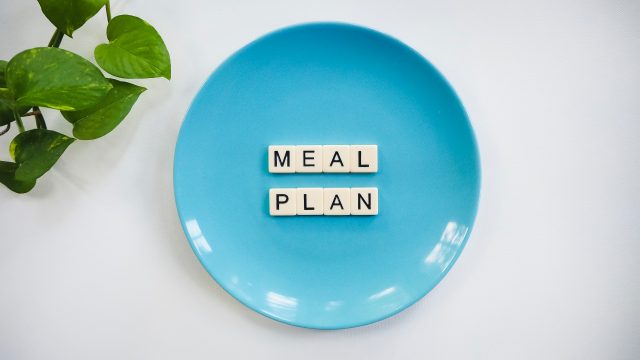
Intermittent fasting, or fasting, has not been out of the best diets for several years. Moreover, this type of nutrition is used not only to lose weight, but also to stay in shape. And unlike diets, fasting can become a way of life.
The popularity of intermittent fasting was brought on by a biohacker from Silicon Valley who said he invested $200,000 in himself and that fasting was one of the points of his program.
Because of its simplicity, intermittent fasting quickly gained an army of supporters and … rivals. We asked Natalya Zubareva, doctor of preventive and anti-aging medicine, to analyze this type of nutrition and explain to whom fasting will help and who will harm.

Natalya Zubareva, Doctor of Preventive and Anti-Aging Medicine, best-selling author, founder of the first Academy of Health
Intermittent fasting is a very popular diet that many see primarily as a way to lose weight. At first glance, everything is simple: eat at certain intervals, do not eat at others and enjoy a slim figure without any special restrictions. But is it?
Intermittent fasting is also called intermittent or intermittent fasting. Its essence lies in the fact that the day is divided into windows – the periods when you can eat and not eat, and the interval itself can be different. For example, the most common pattern is 16/8, but 20/4, 12/12 etc. molds are also possible. The first number is the so-called hunger window, the hours when you can not eat, but drink water, as well as herbal teas, tea and coffee without sugar. Of course, all this without snacks in the form of cookies, sweets, dried fruits and other sweets.

I personally approve of intermittent fasting because fasting is a physiological condition for the human body. Nature did not make a person constantly throw food into his stomach, like firewood in a firebox. But many people do just that: I wanted breakfast, then a few snacks – either sweet tea, then coffee with a sandwich, then lunch, then an apple, and then tea again. In the evening, you want to chew something while watching your favorite TV series. If you’ve never kept a food diary, try to write down everything you put in your mouth for at least a week. I guarantee – there is a high probability that you will be surprised and finally understand where the discomfort in the gastrointestinal tract or extra pounds come from.

benefits of intermittent fasting
Intermittent fasting has many benefits and is really good for your health.
- During fasting, growth hormone rises in the blood – the one that burns the most fat. And intermittent fasting allows not only to increase the production time, thereby contributing to fat burning, but also to stop the release of insulin. Because no food enters the body, there is nowhere for insulin spikes to come from.
- It helps to maintain a good physical shape, activates the body’s regeneration processes, helps to get rid of visceral fat.
- It helps to reduce inflammatory processes, slows down the development of many diseases and the aging process, activates the processes of cell regeneration and healing of the body.
- Intermittent fasting helps to normalize the level of sugar, insulin, cholesterol, as well as restore the sensitivity of cells to this and to leptin, a hormone responsible for regulating appetite and signaling hunger and fullness.
- Finally, intermittent fasting helps maintain normal intestinal microflora, helps increase stress resistance and improves brain activity.

Cons of intermittent fasting
Although intermittent fasting is an easy and fairly comfortable diet, it has its own contraindications and quite a few of them.
Intermittent fasting is contraindicated in the following diseases and conditions:
- diseases of the gastrointestinal tract (including cholelithiasis) that require regular nutrition, especially in the acute period;
- carbohydrate metabolism disorders, especially type I diabetes;
- eating disorders (anorexia, bulimia, compulsive overeating);
- pronounced deficiencies of vitamins and minerals;
- anemia, thrombophlebitis, thyroid dysfunction;
- cardiovascular pathologies: cardiac arrhythmia and conduction disorders, especially AV blockade, at least 30 days after myocardial infarction, chronic heart failure grade IIb-III;
- liver disease: chronic viral hepatitis, liver cirrhosis, chronic liver failure;
- Chronic renal failure.
I will also talk separately about several categories of people who are not recommended for intermittent feeding: pregnant women, children and adolescents, as well as those who actively train and professionally engage in sports.

If you do not have the above contraindications, you can empirically choose a comfortable range for yourself and help your body be healthier by making adjustments to your diet. However, it’s important to remember that intermittent fasting is not an indulgence for later binge eating and your diet should not only fit the time frame, but be balanced according to the KBJU. Only then will you get a good result without side effects such as digestive upsets, gastrointestinal upsets and muscle wasting.
Source: People Talk
Elizabeth Cabrera is an author and journalist who writes for The Fashion Vibes. With a talent for staying up-to-date on the latest news and trends, Elizabeth is dedicated to delivering informative and engaging articles that keep readers informed on the latest developments.





